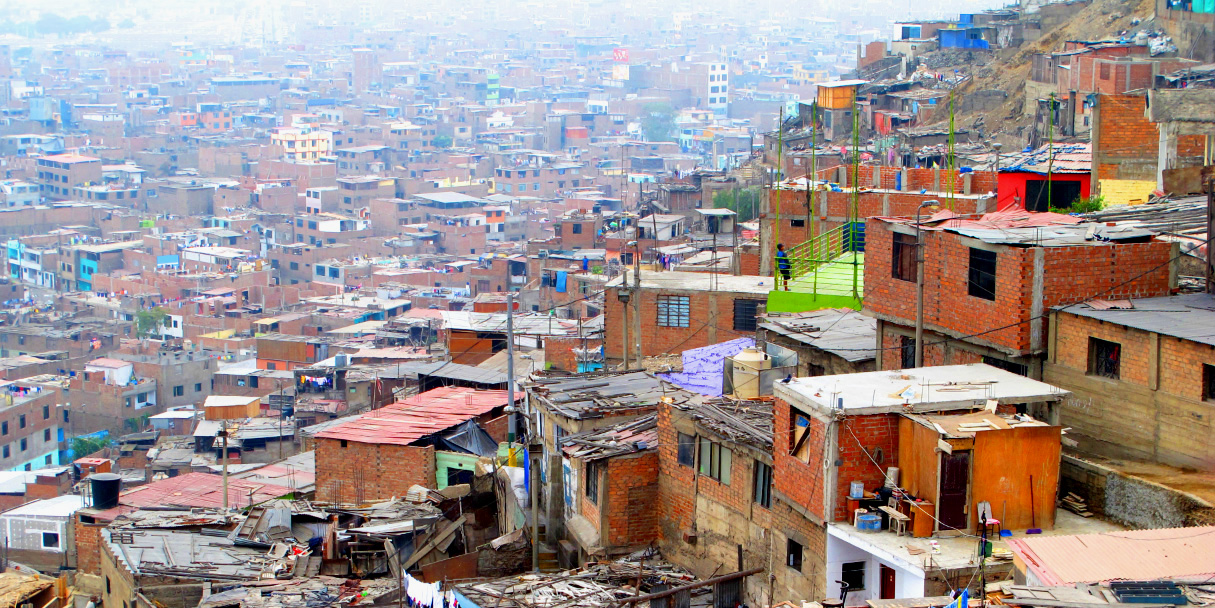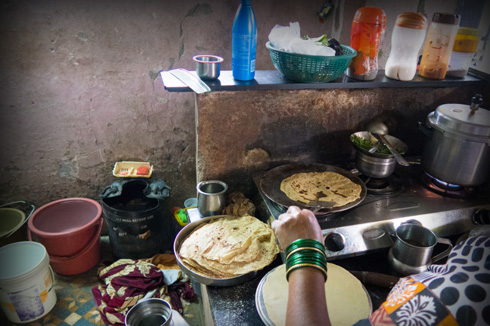Nabil is a highly qualified professional with twenty-five years of experience in securing business outcomes for infrastructure projects using technology. He now helps directors and senior managers to obtain deeper insights on emergent technologies and formulate strategies to leverage opportunities, while navigating change. He has a passion for innovation, research, and the creation of products that anticipate emerging client needs. He has demonstrated flexibility and confidence in a range of leadership contributions, whether as a trusted board member, strategic initiative leader or turnaround manager.
Harish Hande, the founder and Chief Executive of SELCO Foundation, is a renewable energy entrepreneur with over 25 years of grassroots experience in meeting the energy needs of underserved populations. He is also the founder of SELCO India – a pioneering last mile rural energy enterprise based in India since the early nineties.
SELCO sees the pressing need to develop a fertile environment to enhance sustainable energy access solutions for the poor. This energy access increases incomes, improves quality of life, and alleviates poverty, turning energy consumers into asset owners. Last mile energy solutions have clear commercial viability, and SELCO works to combine technical and non-technical aspects focused on alleviating poverty in a sustainable manner.
Today, SELCO is an umbrella of organizations, each tasked to address gaps in the energy access ecosystem. SELCO India established in 1995 runs grassroots operations which sell, install, and service decentralized energy solutions like solar lights systems for households, institutions, digital education, livelihood appliances etc. financed by local financial institutions. SELCO Foundation established in 2010 is an open-source innovation research lab for replicable social innovations across areas: livelihoods, education, and health. SELCO’s incubation program created in 2012 nurtures and catalyses aspiring clean energy enterprises that deploy and maintain sustainable solutions for underserved communities. Finally SELCO Fund registered in 2016 is an impact fund that seeks to deploy patient capital such as equity or debt to last mile energy access enterprises. SELCO operates at every level of the system and at every point in the supply chain, to build an ecosystem that increases accessibility, affordability, and appropriate renewable energy solutions for the poor. Collectively SELCO has so far impacted over 2 million people.
Harish, a graduate from the Indian Institute of Technology, Kharagpur and a Masters and PhD from University of Massachusetts, US. In recognition of his vision and the efforts of SELCO, they have been awarded national and international awards including the reputed Zayed Future Energy Prize in 2018 and the Skoll Award for Social Entrepreneurship – 2018. In 2011, Harish was conferred the Ramon Magsaysay Award in recognition of his vision to catalyse development outcomes via sustainable energy.
Chilean architect, specialized in human settlement programs. As President of the SELAVIP Latin American, African and Asian Popular Housing Service, she promoted and coordinated more than 500 projects for the improvement of precarious and informal settlements in some 50 countries of the global South, for more than 52,000 urban families with limited resources (1998-2014). She was Undersecretary of Housing and Urban Planning of Chile (1990 – 1994) and Executive Director of the Regional Diploma in Human Settlements, CEPAL-MINVU (2000-2003). During her academic career, she has been a visiting professor at various Chilean and foreign universities such as the Master’s Program in Human Settlements at the Catholic University of Leuven, Belgium (2010-2013) and today she is a postgraduate teacher at Chilean universities. He was a member of the group of experts convened by UN-HABITAT to support the preparatory process for Habitat 3 (2015). He has collaborated with international entities such as ECLAC, UN-Habitat, the Inter-American Development Bank, the World Bank and Slum Dwellers International, among others, in matters of her specialty, and has published some 30 documents and books.
Ruth McLeod is an urban development specialist with an international background in organisational development; project assessment, design, management, monitoring and evaluation; human settlement policy and strategy, and innovative financing for housing and settlement upgrading. She was Chief Executive of Homeless International for 19 years and has taught at DPU since 2007. Ruth has worked as an independent consultant for a range of national and multilateral agencies.
Dr. Indrika Rajapaksha is Professor in Architecture in the Department of Architecture at University of Moratuwa. She has been an academic for over 15 years, exploring the fields of Architecture and Architectural Science research in Sri Lanka. She was a Japanese Government Monbusho scholar and holds a Doctor of Engineering (PhD) degree awarded by the Graduate School of Environmental Studies, Faculty of Engineering at Nagoya University, Japan. She was a Research Associate of the Center for Sustainable Design, University of Queensland, Brisbane, Australia, Senior Research Fellow of the Bartlett School of Built Environment, University College London, United Kingdom and a Postdoctoral Research Fellow of the Faculty of Architecture, Design and Planning, University of Sydney, Australia.
She was awarded with several prestigious Fellowships such as the Commonwealth Academic Staff Fellowship tenable in the United Kingdom and Postdoctoral Research Fellowship of the Faculty of Architecture, Design and Planning, University of Sydney. She was the recipient of competitive national research grants and awards for research such as research and publication award of the Sri Lanka Institute of Architects, Award of Excellence for research performance, University of Moratuwa and International Travel Funds of National Science Foundation.
She was a co-researcher of International Energy Agency (IEA) Task 28, Task 47 and IEA-EBC Annex 69, Global Challenge research fund, University of Coventry, UK and the Lead of University of Moratuwa ERASMUS, UK program of Global Disaster Resilience Center, University of Huddersfield, UK. She is an Associate Editor of the Architectural Science Review, Journal of Taylor and Francis, UK. She is a Chartered Architect with more than 20 years of professional experience as an Associate member and was a member of the Council of the Sri Lanka Institute of Architects.







